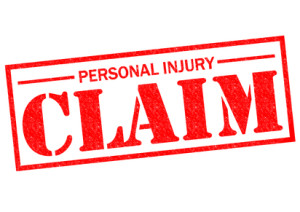Avoiding Poor Choices in Personal Injury Cases

You may be young and hungry, aiming to make a mark in the daunting world of the legal profession. Just past the bar, you’re ready to change the world and put food on the able. However, many paths that may seem like shortcuts are instead common mistakes for attorneys, especially those that are less experienced.
Jumping into any old personal injury case may seem tempting, but should only be done with the appropriate research and foresight. If you are considering taking on such a case that you are not specialized in, you may be risking your ethical standards and reputation– not to mention your client’s case.
Stick to What You Know
The more training and experience you have in a certain field, the more comfortable and competent you may feel in organizing a case. However, if you have nary any experience in personal injury cases and think that your training in real estate law will carry you off the bat, you likely need some seasoning.
Read below to see some of the most common pitfalls that attorneys face when taking on such cases:
Did You Do Your Research?
A client comes in and it seems easy enough. There is a demonstrable fault on behalf of one party or an obstinate government agency or insurance company looking to avoid paying out. It seems open and shut until you realize that there are many strings attached. Avoid jumping in before tracing these strings back to the initial issues.
Are there problems revolving around liens? Are there significant worker’s comp, medical, or attorney’s liens that you’ve missed or underestimated? Are these issues that can hike your own fees and reduce the final settlement amount going into your client’s pocket? If you wind up flying blind you can wind up on the hook personally for not properly dealing with liens in your client’s recovery.
What do you know about your client? Have you taken the time to properly study their character and history? Do they have a record of seemingly dubious claims in the past and failed lawsuits? Did they constantly call their former attorneys at 2am every night?
Are they willing to go through medical treatment to both make themselves whole again and assist in their own case? Having clients that are not willing to cooperate and expect the moon could lead to you missing filing deadlines or having compounding issues inside and out of court.
Have you properly informed your client about the possible effects of the case and reasonable expectations? Do you have a potential client that thinks that they will be able to retire on a soft tissue damage suit? Have they been informed about your actions and possible outcomes? Make sure that they realize how any potential settlement will be split up and why. Make sure that they understand the possible tax effects that such a case could result in and that they are covered come April 15th and beyond.
Take Care of You First
Have a new child at home and have a demanding set of cases already? Are you out constantly until nine, ten, or later seven days a week? Don’t bite off more than you can chew. Making sure that you are prepared for the eventualities of the case beyond winning and losing is vital. Even an ultimately successful case can require days of additional research and court dates that won’t be reflected in your final fees.
You may be forced to subcontract work out or drop potentially more lucrative cases due to the pressure. You may need to conduct additional weeks of discovery and interviews to determine the viability of your claims. All of these forces can affect your judgement and your wallet. Don’t let yourself give second rate service to clients that have put their trust in you. If you don’t have time to give it your full effort, you probably shouldn’t do it at all.
With the right experience you can ensure a better outcome for your clients. Of course, most attorneys don’t pass the bar with tremendous experience and there is a learning curve for all new lawyers. Still, weighing your experience with the demands of the case and jurisdiction is an important step towards learning.
If you are still green and unable to work with or around various local, state, and federal statutes, you need additional seasoning. Studying these portions of laws and regulation or working with another experienced attorney can be just what is needed for your growing career. You will be able to take better, more detailed notes and understand many of the ins and outs of personal injury law.
Remember– it’s your career. Don’t leave it up to chance.

Michael Ehline is a self-taught attorney who followed Abraham Lincoln’s path to the bar. His firm Ehline Law helps educate young attorneys in the fields of ethics and responsibility to clients. A retired Marine, Michael understands that there is no more powerful idea than a promise kept.
